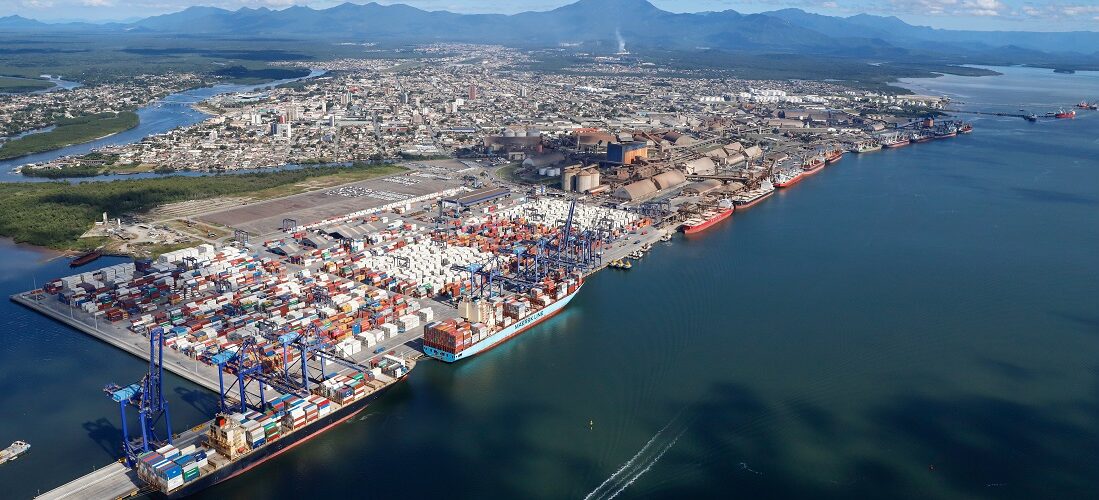
Paranagua and Antonina announce 6% year-to-date increase in throughput
Sep, 15, 2023 Posted by Gabriel MalheirosWeek 202338
The Ports of Paranagua and Antonina reported a 6% cumulative throughput increase in August 2023 compared to the same period last year. Despite four extra days of rain, which prevented normal operations with some cargo throughout the month, the efficiency of the port structure in Paraná balanced this setback, resulting in 42,103,413 tonnes handled – compared to 39,856,514 tonnes in the same period in 2022.
In terms of exports, soybeans stand out with a 25% increase (from 8,152,332 tonnes to 10,172,737 tonnes), and bulk sugar, with a growth of 26% (from 2,279,870 tonnes to 2,864,221 tonnes). Considering exports and imports altogether, liquid bulk items stand out with a 14% increase (from 5,485,827 tonnes to 6,279,678 tonnes).
Year-on-year growth for the month of August specifically was even greater, increasing 14% to 6,042,717 tonnes from 5,279,757 tonnes in the same month of 2022. The highlights were soybeans (from 852,768 tonnes to 1,694,016 tonnes, an increase of 99%) and general cargo (from 20,332 tonnes to 189,687 tonnes, an increase of 833%).
According to Gabriel Vieira, Director of Port Operations at Portos do Paraná, the strong demand seen in the year’s first half is set to continue in the second half. “We started the first half with intense demand, knowing that we would produce very well, and now we also see favorable numbers.”
“In August, despite the high volume of rain, we’ve seen very positive productivity in the Eastern Export Corridor, with 2.3 million tonnes moved between soybeans, meal, and corn. The liquid bulk segment has also been very active at the port, and we cannot forget the fertilizer segment, which has seen a recovery compared to August of last year,” he adds.
See below a table containing the percentage variation of the most exported goods categories at the Ports of Paranagua and Antonina in the first seven months of 2023 compared to the previous year.
Cargo variation at Paranagua and Antonina | 2023 | WTMT
Source: DataLiner (click here to request a demo)
According to the data from the Directorate, there was almost 6% (nearly four days) more rain compared to the same period last year, but productivity gains offset this. “We had an increase in our operational draft, an improvement in our maritime infrastructure that allowed us to load more cargo with reduced unproductive times in ship maneuvers and turns, and today we have two very efficient Export Corridors, East and West,” he highlights.
The growth in the movement of soybean meal (from 3,987,450 tonnes to 4,332,671 tonnes, an increase of 9%) and corn (from 2,666,300 tonnes to 2,901,514 tonnes, also a 9% increase) also contributed to the positive numbers in 2023. “We have a multipurpose port, and we are serving all segments with quality and efficiency,” evaluates Gabriel.
These numbers are likely to be reflected in the final balance of 2023. “Following the pace at which we have been producing so far, the expectation is for growth between 5% and 6% compared to last year. We expect to handle between 61 and 62 million tons, analyzing our pace and also the ship lineup until the end of the year,” concludes the director.
-
Coffee
May, 24, 2024
0
Coffee traders speed up shipments before EU deforestation law, says ICO
-
Shipping
Jan, 02, 2023
0
What to expect in 2023 – 4 key trends in freight forwarding
-
Ports and Terminals
Aug, 11, 2021
0
Santos Brasil studies liquid bulk auctions in Santos and PR
-
Shipping
Dec, 16, 2024
0
TCP Welcomes First Vessel Using New Maximum Operational Draft

